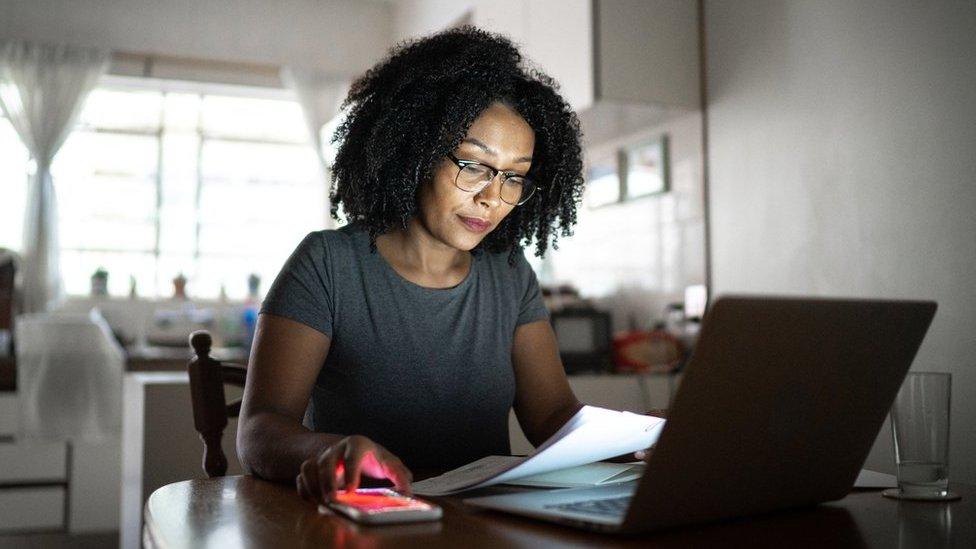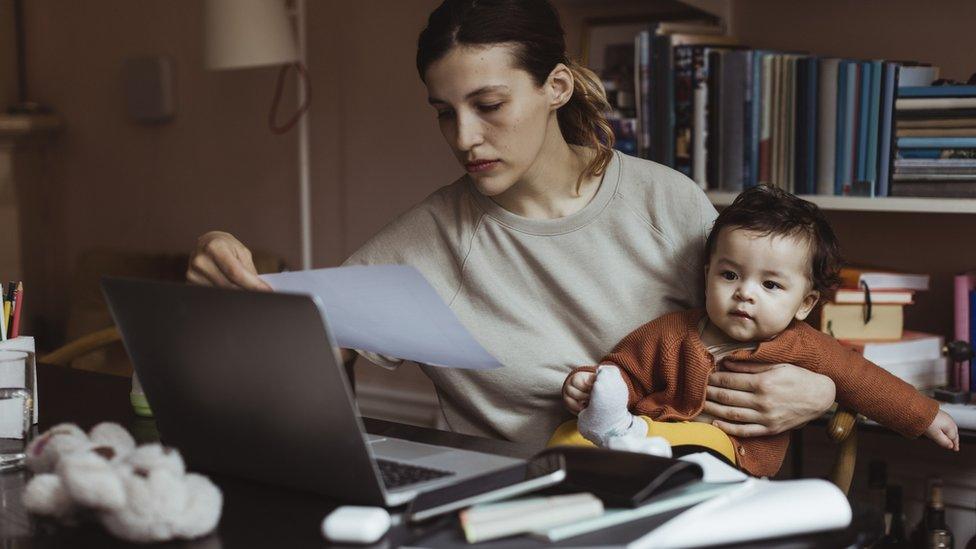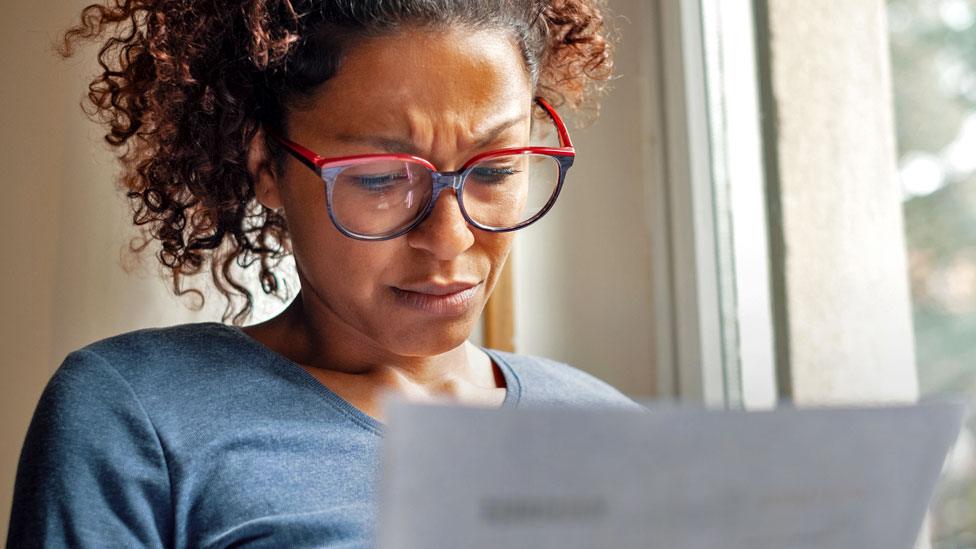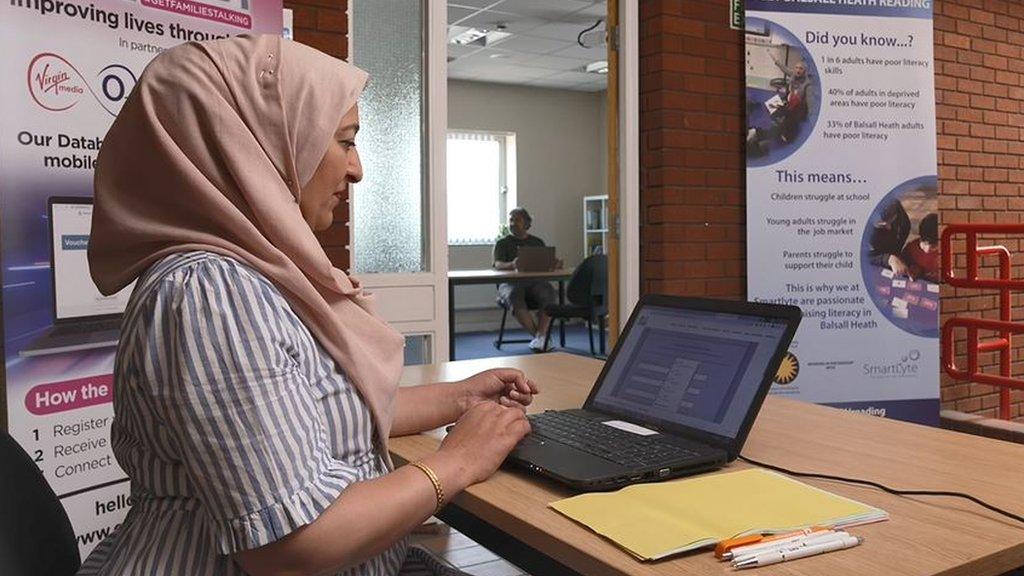Cost of living: Government to simplify broadband access
- Published
- comments

The government is launching a new system to simplify access to cheaper broadband.
From 22 August, people receiving certain benefits can ask broadband firms to check their eligibility for social tariffs.
This means customers will not have to take full responsibility for proving they qualify for low-cost options.
Campaign group Digital Poverty Alliance described it as a positive first step but warned it did not go far enough.
Elizabeth Anderson, chief operating officer for the Alliance, argues that, as more sectors moved essential resources and services online ,"it's not right that a growing number of people face being cut off from the online world".
Which? analysis of recent Ofcom data revealed nearly six million households are struggling to pay for essential telecoms, external.
Steve Leighton, chair of the Internet Service Providers Association, said the association welcomed the government's launch of an application programme interface (API) for members - following calls by the sector for a system to help verify eligibility.
"While we still need to see the technical details, the API should help our members identify eligible customers more easily and offer them targeted support," Mr Leighton said.
But he reiterated concerns over whether the measures went far enough, adding the government could ease the cost of living crisis' impact on the industry by reducing VAT on broadband bills.
'Vital for families'
Reduced social tariffs allow UK households receiving government benefits such as Universal Credit, Pension Credit, Jobseeker's Allowance and Income Support to pay less for internet and telecoms access.
Current providers include BT, Community Fibre, NOW, Sky, Virgin Media and VOXI.
Tariffs, external range from £10 to £25 per month depending on preferred bandwidth, supplier and who qualifies for the low-cost alternative.
Nadine Dorries, Secretary of State for Digital, Culture, Media and Sport, said social tariffs were "vital for families struggling with bills".
Ms Dorries said the government had secured commitments from the UK's internet service providers to help customers struggling with bill payments and costly contracts to stay connected.
"I urge anyone concerned about falling behind on payments to contact their supplier to see what support is available," she added.

The government's new system, which allows customers to more easily prove eligibility for cheaper broadband, aims to raise awareness and take up of broadband social tariffs among the general public.
Ofcom reported earlier this year that only 1.2% of more than four million households receiving Universal Credit had successfully applied for broadband social tariffs.
Ms Anderson said the low-cost options needed more promotion by the government and the Department of Work and Pensions (DWP), which will run the new eligibility system.
She said the DWP should "actively make everyone who's eligible aware of social tariffs" to prevent those struggling from being plunged into digital poverty - essentially unable to afford to go online.
Secretary of State for Work and Pensions Thérèse Coffey said the new system, which launches next week, would make social tariffs easier to access at a time when it was "more important than ever that people get the financial support available to them".
Related topics
- Published1 August 2022

- Published26 July 2022

- Published5 April 2022
